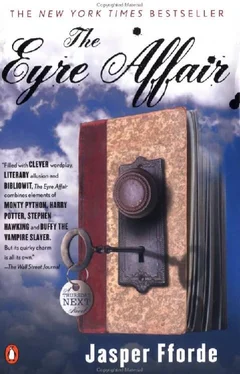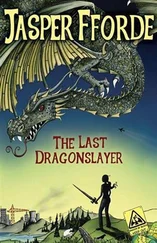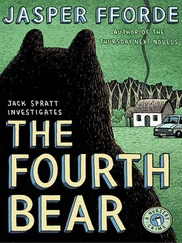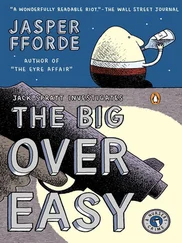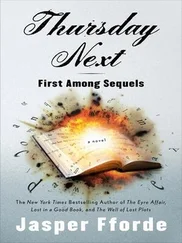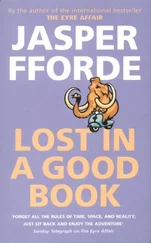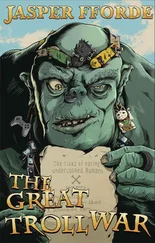The scene changed to a close-up of an exotic-looking weapon handled by a soldier in Military SpecOps uniform.
‘This is the new Stonk plasma rifle, unveiled today by the Goliath Special Weapons Division,’ announced Backbiter, standing next to the soldier on what was obviously a test range. ‘We can’t tell you very much about it for obvious reasons, but we can show its effectiveness and report that it uses a bolt of concentrated energy to destroy armour and personnel up to a mile away.’
I watched in horror as the soldier demonstrated the new weapon. Invisible bolts of energy tore into the target tank with the power of ten of our howitzers. It was like an artillery piece in the palm of your hand. The barrage ended and Backbiter asked a colonel a couple of obviously posed questions as soldiers paraded with the new weapon in the background.
‘When do you suppose the front-line troops will be issued with Stonk?’
‘The first weapons are being shipped now. The rest will be supplied just as soon as we can set up the necessary factories.’
‘And finally, its effect on the conflict?’
A small amount of emotion flickered on the colonel’s face. ‘I predict Stonk will have the Russians suing for peace within a month.’
‘Oh, shit,’ I murmured out loud. I’d heard this particular phrase many times during my time in the military. It had supplanted the hoary old ‘over by Christmas’ for sheer fatuousness. It had always, without exception, been followed by an appalling loss of life.
Even before the first deployment of the new weapon, its mere existence had upset the balance of power in the Crimea. No longer keen on a withdrawal, the English government was trying to negotiate a surrender of all Russian troops. The Russians were having none of it. The UN had demanded that both sides return to the talks in Budapest, but it had all stalled; the Imperial Russian Army had dug themselves in against the expected onslaught. Earlier in the day the Goliath Special Weapons spokesman had been instructed to appear before Parliament to explain the delay of the new weapons, as they were now a month behind schedule.
A screech of tyres roused me from my thoughts. I looked up. In the middle of the hospital room was a brightly painted sports car.
I blinked twice but it didn’t vanish. There was no earthly reason why it should be in the room or even any evidence as to how it got there, the door being only wide enough for a bed, but there it was. I could smell the exhaust and hear the engine ticking over, but for some reason I did not find it at all unusual. The occupants were staring at me. The driver was a woman in her mid-thirties who looked sort of familiar.
‘Thursday—!’ cried the driver with a sense of urgency in her voice.
I frowned. It all looked real and I was definitely sure I had seen the driver somewhere before. The passenger, a young man in a suit whom I didn’t know, waved cheerily.
‘He didn’t die!’ said the woman, as though she wouldn’t have long to speak. ‘The car crash was a blind! Men like Acheron don’t die that easily! Take the LiteraTec job in Swindon!’
‘Swindon—?’ I echoed. I thought I had escaped that town—it afforded me a few too many painful memories.
I opened my mouth to speak but there was another screech of rubber and the car departed, folding up rather than fading out until there was nothing left but the echo of the tyres and the faint smell of exhaust. Pretty soon that had gone too, leaving no clue as to its strange appearance. I held my head in my hands. The driver had been very familiar. It had been me.
My arm was almost healed by the time the internal inquiry circulated its findings. I wasn’t permitted to read it but I wasn’t bothered. If I had known what was in it, I would probably only have been more dissatisfied and annoyed than I was already. Boswell had visited me again to tell me I had been awarded six months’ sick leave before returning, but it didn’t help. I didn’t want to return to the LiteraTec’s office; at least, not in London.
‘What are you going to do?’ asked Paige. She had turned up to help me pack before I was discharged from hospital.
‘Six months’ leave can be a long time if you’ve got no hobbies or family or boyfriend,’ she went on. She could be very direct at times.
‘I have lots of hobbies.’
‘Name one.’
‘Painting.’
‘Really?’
‘Yes, really. I’m currently painting a seascape.’
‘How long has it taken you so far?’
‘About seven years.’
‘It must be very good.’
‘It’s a piece of crap.’
‘Seriously, though,’ said Turner, who had become closer to me in these past few weeks than during the entire time we had known each other, ‘what are you going to do?’
I handed her the SpecOps 27 gazette; it outlined’ postings around the country. Paige looked at the entry that I had circled in red ink.
‘Swindon?’
‘Why not? It’s home.’
‘Home it might be,’ replied Turner, ‘but weird it definitely is.’ She tapped the job description. ‘It’s only for an operative—you’ve been acting Inspector for over three years!’
‘Three and a half. It doesn’t matter. I’m going.’
I didn’t tell Paige the real reason. It could have been a coincidence, of course, but the advice from the driver of the car had been most specific: Take the LiteraTec job in Swindon! Perhaps the vision had been real after all; the gazette with the job offer had arrived after the visitation by the car. If it had been right about the job in Swindon, it stood to reason that perhaps the news about Hades was also correct. Without any further thought, I had applied. I couldn’t tell Paige about the car; if she had known, friendship notwithstanding, she would have reported me to Boswell. Boswell would have spoken to Flanker and all sorts of unpleasantness might have happened. I was getting quite good at concealing the truth, and I felt happier now than I had for months.
‘We’ll miss you in the department, Thursday.’
‘It’ll pass.’
‘ I’ll miss you.’
‘Thanks, Paige, I appreciate it. I’ll miss you, too.’
We hugged, she told me to keep in touch, and left the room, pager bleeping.
I finished packing and thanked the nursing staff, who gave me a brown paper parcel as I was about to leave.
‘What’s this?’ I asked.
‘It belonged to whoever saved your life that night.’
‘What do you mean?’
‘A passer-by attended to you before the medics arrived; the wound in your arm was plugged and they wrapped you in their coat to keep you warm. Without their intervention you might well have bled to death.’
Intrigued, I opened the package. Firstly, there was a handkerchief that despite several washings still bore the stains of my own blood. There was an embroidered monogram in the corner that read ‘EFR’. Secondly the parcel contained a jacket, a sort of casual evening coat that might have been very popular in the middle of the last century. I searched the pockets and found a bill from a milliner. It was made out to one Edward Fairfax Rochester, Esq. and was dated 1833. I sat down heavily on the bed and stared at the two articles of clothing and the bill. Ordinarily I would not have believed that Rochester could have torn himself from the pages of Jane Eyre and come to my aid that night; such a thing is, of course, quite impossible. I might have dismissed the whole thing as a ludicrously complicated prank had it not been for one thing: Edward Rochester and I had met once before…
6. Jane Eyre: A short excursion into the novel
‘Outside Styx’s apartment was not the first time Rochester and I had met, nor would it be the last. We first encountered each other at Haworth House in Yorkshire when my mind was young and the barrier between reality and make-believe had not yet hardened into the shell that cocoons us in adult life. The barrier was soft, pliable and, for a moment, thanks to the kindness of a stranger and the power of a good storytelling voice, I made the short journey—and returned.’
Читать дальше
